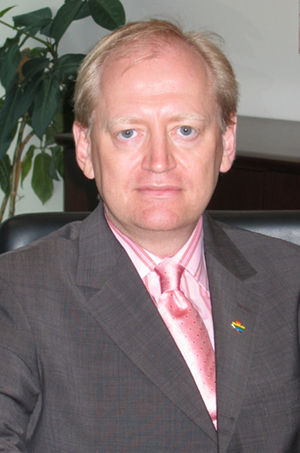The Ontario Court of Appeal has dismissed a Toronto law firm’s claim against a rival firm that took over one of its contingency fee files.

Heydary Hamilton Professional Corp. sued former franchisee clients Thakar and Rajiv Baweja over an unpaid bill of more than $60,000, but also named Ben Hanuka and his firm, Davis Moldaver LLP as defendants, claiming damages for conspiracy, inducing breach of contract and unlawful interference with economic interests, and unjust enrichment.
Superior Court Justice James Spence struck out the claim against the lawyers on the basis that it could not possibly succeed, drawing on case law supporting the absolute right of a client to discharge a lawyer.
In
Heydary Hamilton Professional Corp. v. Hanuka, Appeal court justices Janet Simmons, Eleanore Cronk, and Jean MacFarland agreed with Spence’s decision, noting that Heydary Hamilton’s claim “contained bald, unsupported assertions of professional misconduct.”
“Although it may be generally desirable that successor law firms co-operate in protecting a predecessor law firm’s account, to hold that a successor law firm’s failure to make arrangements to do so, standing alone, could found a cause of action would trench on a client’s unfettered right to change counsel,” they wrote.
The Bawejas retained Heydary Hamilton in a dispute with their franchisors in 2007, with an agreement that provided for an up-front payment of $50,000 to the law firm, plus 27 per cent of any future settlement.
When an issue came up with the sublease between the same parties in September 2009, Heydary Hamilton told the Bawejas it was outside the scope of their retainer, so the two men turned to Hanuka to deal with the sublease. By November 2009, Davis Moldaver had taken over carriage of the existing matter from Heydary Hamilton.
Heydary Hamilton argued that Hanuka had “improperly engaged” in correspondence regarding its own litigation proceedings when he wrote to the franchisors about the sublease, but the appeal court found that claim was “without foundation.”
Hanuka says he was surprised when he was named in the statement of claim from Heydary Hamilton, a month later.
“It struck me as bizarre, because we simply got a client who was not happy,” he says. “The allegations in the claim were extreme.”
He says he was happy that the Court of Appeal decision dismissed the allegations that he saw as groundless.
“This is my first time being sued and it’s not pleasant, so I’m very pleased,” Hanuka says. “My partners are pleased too, because they sued the firm as well as myself.”
Douglas Elliott, a partner at Roy Elliott O’Connor LLP who represented Heydary Hamilton on the appeal, says the court has “missed a golden opportunity” to set guidelines for firms that poach clients on contingency fee retainers.
He says the short history of contingency fees in Ontario has left the province’s law in the area outdated, compared with American jurisdictions with a much more mature contingency-fee marketplace.
“It’s true clients have a right to choose their lawyer, but at a certain point, the court is going to have to step in and offer some protection to the economic interests of law firms who take on these contingency fee arrangements or it’ll be the Wild West out there,” says Elliott.
He says he understands the appeal court’s concerns about the lack of supporting evidence in Heydary Hamilton’s claim, but was disappointed the court denied leave to amend it.
Elliott says law firms can only protect themselves so far with retainer agreements, because they cannot have any effect on the behaviour of a successor firm that can take over a file even after significant resources have been devoted to it without payment.
“I was dismayed that the court adopted a pretty conservative position and took a conventional approach to what I think may be an increasingly serious problem of lawyers: the poaching of clients in contingency fee situations,” he says. “This panel felt there is extremely wide latitude for the conduct of the new law firm and I find that very troubling.”

 Heydary Hamilton Professional Corp. sued former franchisee clients Thakar and Rajiv Baweja over an unpaid bill of more than $60,000, but also named Ben Hanuka and his firm, Davis Moldaver LLP as defendants, claiming damages for conspiracy, inducing breach of contract and unlawful interference with economic interests, and unjust enrichment.
Heydary Hamilton Professional Corp. sued former franchisee clients Thakar and Rajiv Baweja over an unpaid bill of more than $60,000, but also named Ben Hanuka and his firm, Davis Moldaver LLP as defendants, claiming damages for conspiracy, inducing breach of contract and unlawful interference with economic interests, and unjust enrichment.